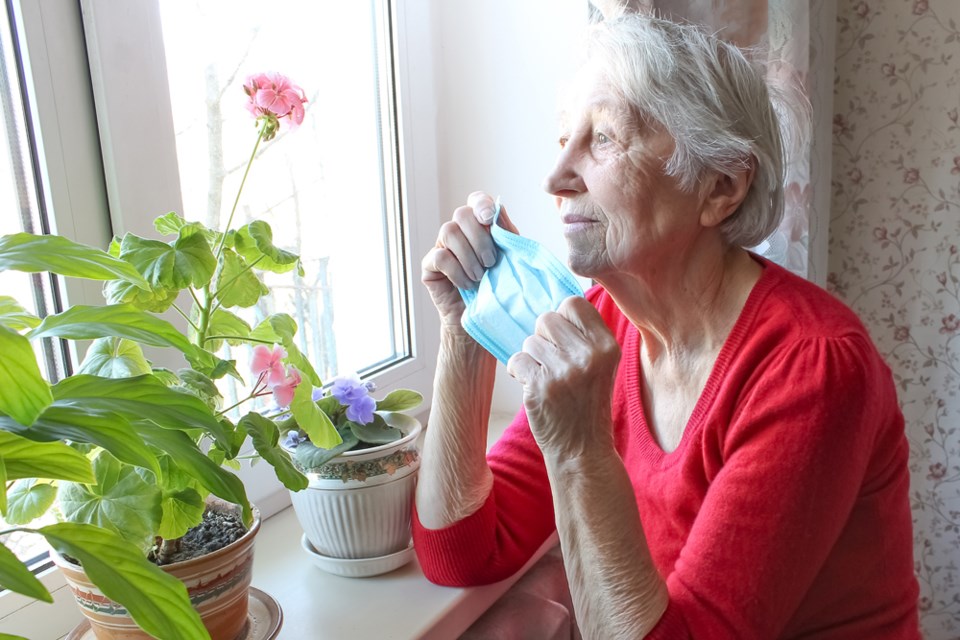An ongoing issue for most of us is dealing with scams and fraud, but for seniors it can be especially difficult. Also, while scams and fraud are always a concern for seniors, the pandemic has resulted in a new batch of dodgy con artist tricks.
On the Canadian government’s website, it states that: “Fraud is the number one crime against older Canadians. Though people of all ages can be victims of fraud, older people get targeted more than others.”
Seniors are often targeted because they are at home during the day to receive phone calls and knocks on the door. It is thought that seniors may be more trusting, and they may not have family or friends close by who can give them a second opinion.
According to the Senior Safety 2020 guide, published in the North Shore News, frauds and scams include a variety of ploys.
A favourite for targeting the lonely includes the romance scam. Through phone calls, emails or texting, the scammer will ultimately get someone to give them money. A different scammer might use extortion, perhaps impersonating a government official to obtain money, property, or services.
I have been asked to contact a scammer purporting to be an official from Canadian Revenue Agency asking me to contact them about my taxes. Very disconcerting – we all want to be good citizens and pay what we owe. Watch out for scammers offering paid services – they can be “false, deceptive and misleading.”
Many of us have been asked to donate to a charity which may be a fake organization. Probably the offer we all want to believe is the one where we are advised we have won a prize – but this usually entails sending a payment to the prize “giver” up front.
As it staties in Senior Safety, “don’t send any amount of money to someone you have never met until you actually receive what you were promised. Also keep in mind if an offer is too good to be true, it probably is”.
The North Vancouver RCMP detachment, always concerned about fraud and scam prevention, contributed the information to the Senior Safety 2020 guide. Their information is contained in the Guidebook to Safety and Security which can be obtained by calling 604-985-1311.
As the COVID-19 pandemic proceeds, new scams and fraud schemes are cropping up including phone calls or internet phishing attempts to get your social insurance number, drivers license, banking, and credit card information. These schemes are usually meant to steal your identity or passwords to your computer information.
On the website COVID-19 Frauds and Scams it states that the losses to these ploys total $5.6 million with 2,963 victims.
The Financial Consumer Agency of Canada is warning Canadians to be cautious when receiving emails or text messages that appear to be from a financial institution asking for personal or financial information. They offer this advice: “Financial institutions will never ask for personal information, login credentials or account information by email or text message. If you receive unsolicited or suspicious emails or text messages from a financial institution, do not click on the links or attachments. Remember: If you didn’t initiate contact with a financial institution, you don’t know who you are dealing with.”
Companies offering services might say they can protect you from COVID by buying their products, including heating and ducting services. Some health-related companies offer essential oils or vitamins to prevent or ease the symptoms of COVID-19. Some companies claim products to boast immunity. These products are not proven effective and safe and could do serious damage, if only to your pocketbook. For a comprehensive list of reported scams look on the Canadian Anti-fraud website.
Two tried and true phrases in the world of fraud investigation it is said in Senior Safety: “you don’t get something for nothing, and buyer beware.”
Fraudsters and scammers are still out there using their skills to con the unwary – do not let them get to you. “It is your responsibility to be alert, to be familiar with common frauds and scams, and to be well informed on tips that may prevent you from becoming a victim of fraud.”
Margaret Coates is the co-ordinator of Lionsview Seniors’ Planning Society. She has lived on the North Shore for 50 years and has worked for and with seniors for 25 of those years. Ideas for future columns are welcome Email: [email protected]



